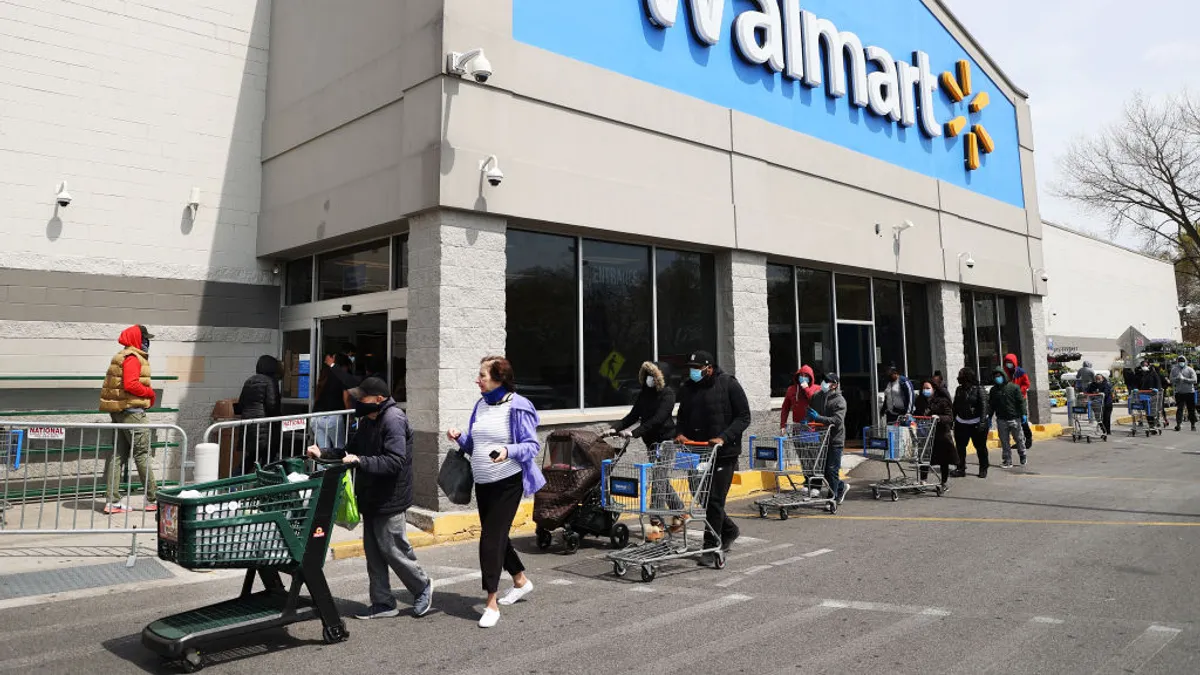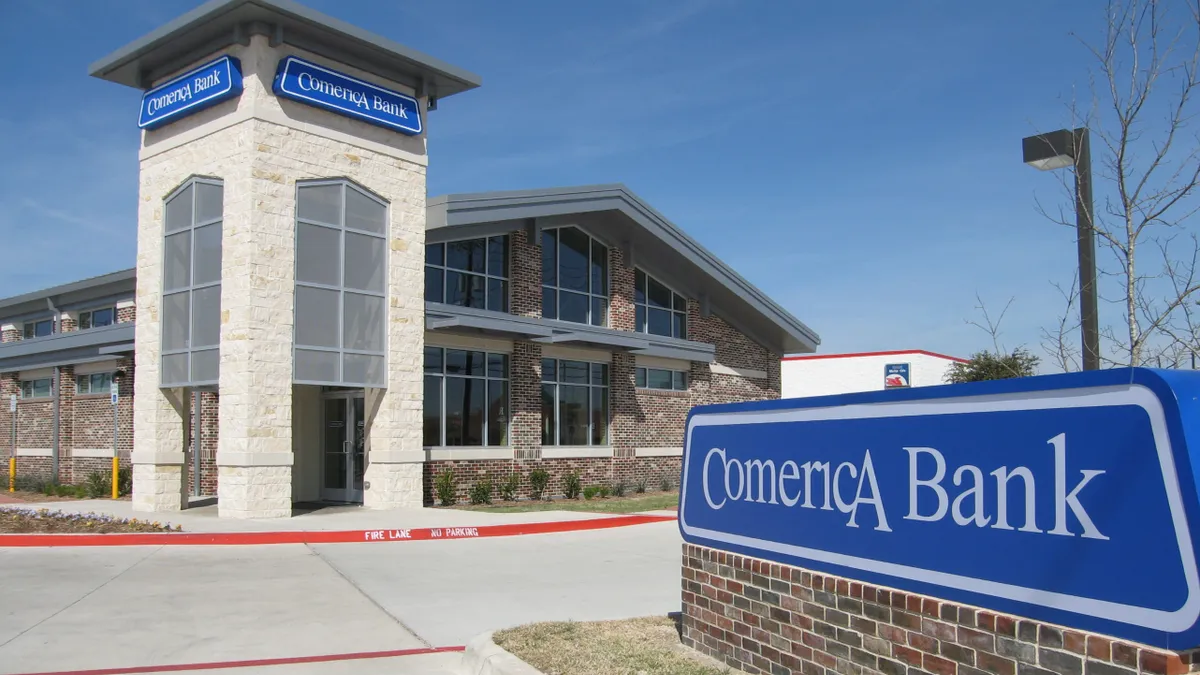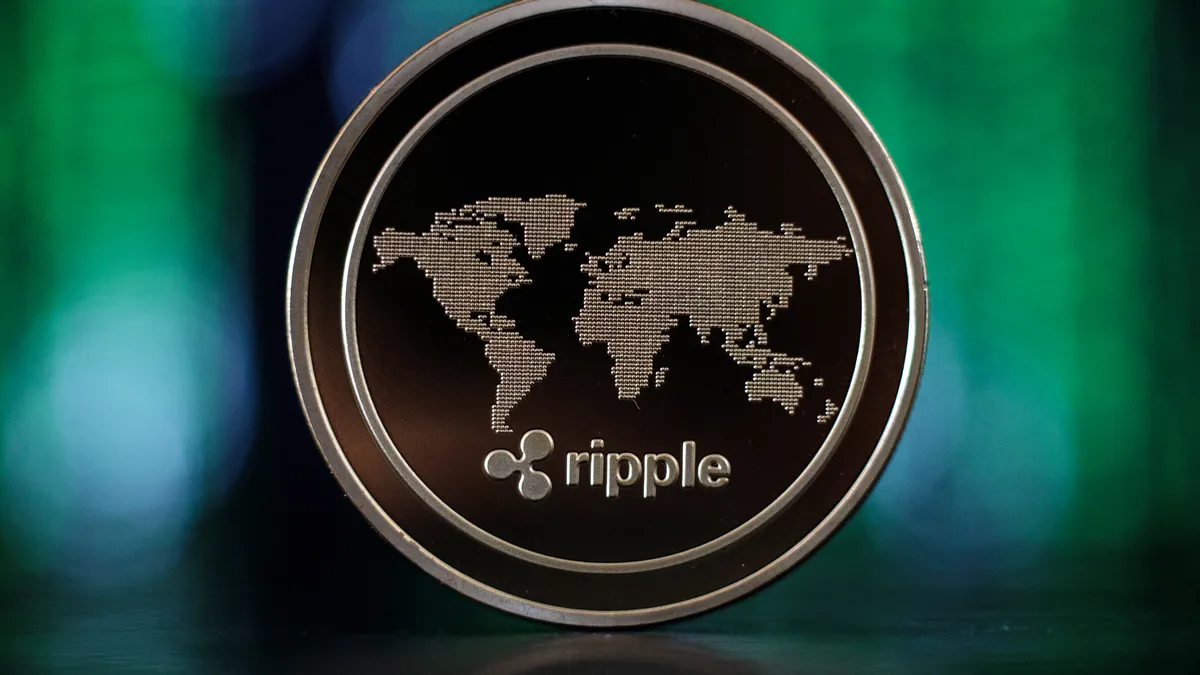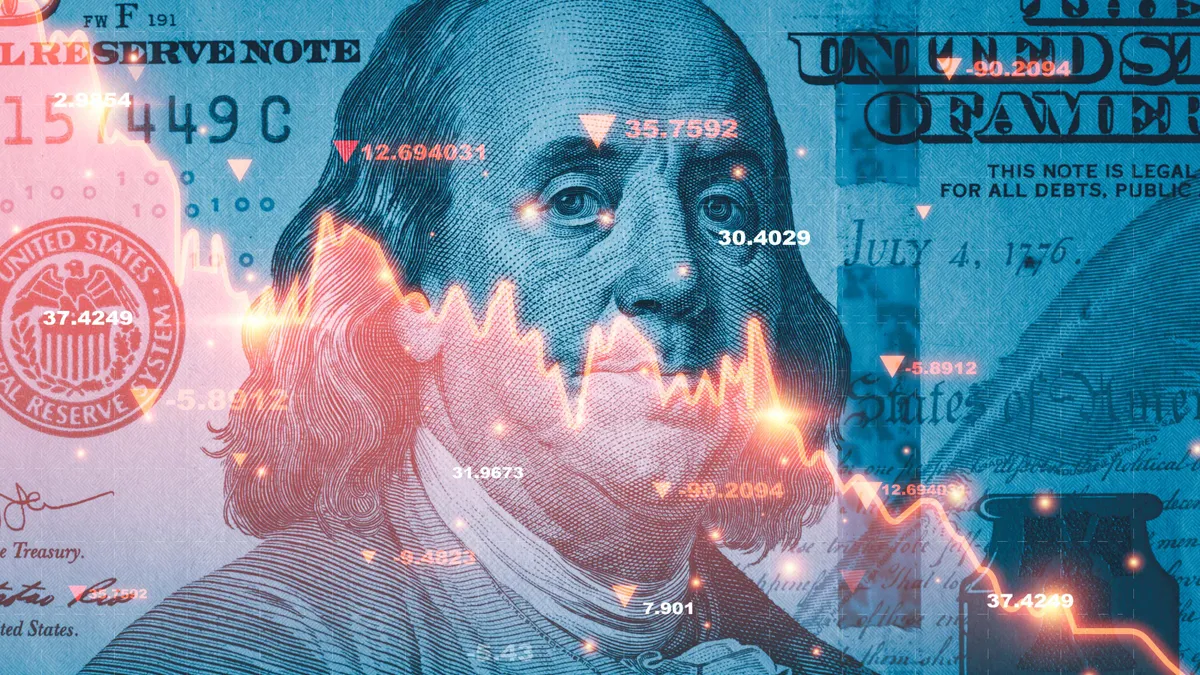Ever since two top Goldman Sachs executives left its consumer bank, Marcus, last year to join retail titan Walmart, financial and payments circles have been abuzz wondering what they were up to. Now we know.
Walmart on Wednesday announced the Hazel venture they joined is launching a financial services app business, targeting workers and consumers alike. To make it happen, the venture with Ribbit Capital launched last year is buying two California fintechs, the release said.
One of the former Marcus executives, Omer Ismail, will become CEO of the new "super app" business, to be called One, the release said. The other, David Stark, will have a "senior leadership role" at One and the name Hazel will disappear, a spokesperson for the companies said.
One will be formed through the combination of the newly acquired companies: earned wage access company Even Responsible Finance and digital financial services company One Finance, which partners with Everett, Washington-based Coastal Community Bank. Together, they will create a company that aspires to meet Americans’ financial needs with a single app.
The companies declined to disclose any financial terms of the deal other than to say One’s new balance sheet will have $250 million to work with as it seeks to expand with more hiring and acquisitions. The transaction is still subject to regulatory approvals, but is expected to close in the first half of this year, according to the press release.
Assuming it’s approved, it will have a head start in selling the new services, with access to the 1.6 million employees at Walmart — the largest U.S. employer — and to the retailer’s 100 million weekly shoppers. Over time, the new business plans to capture more One customers by offering the services through other partner merchants and employers, Even CEO David Baga said.
Even already provides its services to about two million employees, including those at Walmart, its largest client. He declined to say what percentage of Walmart's employees have tapped the service.
New financial habits
The operation will include at least 200 employees, with 100 each coming from Even and One Finance, Baga said. Even, which provides U.S. employees with access to earned wages before their payday, expects to find a ready market for the new "super app" services.
Growth will be swift, Baga said. He expects One will double its workforce in 2022, and again in 2023.
"Consumers have been left behind by the traditional financial services," Baga said in an interview, noting how many are underbanked, overburdened by bank fees and unable to absorb a $400 financial crisis. "We’re still failing to meet the needs of American families and you could argue it’s getting worse, not better."
He stopped short of saying One’s services will save Americans money when asked how the company will shore up their finances. Instead, he explained how One’s services will be designed to help Americans build new habits for budgeting, saving, borrowing and investing.
To describe One's target customer, the spokesperson pointed to a comment Ismail gave to The Wall Street Journal, which said One would seek to provide mobile-based services that appeal to people across the socioeconomic spectrum.
In the press release, Ismail said: "Our vision is clear: build on Even and ONE's success to offer a product that offers consumers the best way to spend, the best way to access their wages and helps millions save and grow their money."
Oakland, California-based Even, founded in 2014, provides its services to employees of Walmart, digital payments giant PayPal, health insurer Humana, restaurant chain Noodles & Co. and other companies.
The services are designed for hourly workers who can use the digital tools to manage their cash flow, Even’s executive chairman, Jon Schlossberg, said in an interview last year. About half of Even's employer-clients absorb the cost of its services for employees while the other half charge employees based on their usage, Schlossberg said.
A slew of companies have entered the earned wage access business as workers tap their wages early in a trend some call on-demand pay.
Super-app competition
Walmart isn’t the only company vying to capture the attention of Americans who have found the U.S. banking system displeasing or disenfranchising. PayPal and its payments peer Block, formerly Square, as well as Google, have been developing such super app services. Pharmacy chain Walgreens got into the act, too, with help from the neobank Chime, and buy now-pay later company Affirm launched its own super app this week.
A swarm of fintech companies have offered such services in recent years, Baga said, lamenting the difficulty for consumers of juggling them all.
"The onus for managing all these different logins and accounts and user experiences falls on consumers, and consumers will begin to tire of that. So we think there will be a rebundling of sorts," Baga said. "We believe this gives us an incredibly powerful platform to start with."
Baga and Brian Hamilton, the CEO of One Finance, will take new leadership roles in the company, according to the press release. For Baga, that will mean a broad operating role reporting to Ismail, with a focus on commercial aspects of the business, he said.
Even’s investors, which pumped at least $52 million into the company, are likely to be bought out as part of the transaction, though Baga declined to comment specifically on that aspect of the deal.
He also declined to talk about how the companies will be integrated, or how Walmart’s employees or Even’s current users might be transitioned to the new One services.
Schlossberg and fellow Even co-founder Quinten Farmer will not have jobs at the new company, though they will be "consultants for the next several years," Baga said.























